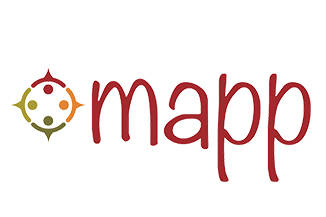Have you ever felt bogged down by the growing list of must-dos that fill your busy days? Summer is a beautiful time of year, often what we picture when we think of wellness, but it can take hold of and consume us — over before we know it. Whether you run a fishing charter, lovingly wrangle children, direct traffic on the East Hill construction, care for elders, or head to Bristol Bay for salmon season, the long days we cherish can blur together. The hectic routines and mounting to-do lists can overwhelm us and even diminish our important connections to one another.
The long days around the Solstice seem never-ending for me. I am not complaining, though, because in between work and taking care of kids, pets, and home, there is still more daylight, and more time, for community celebrations. June is a month full of celebratory possibilities: Summer Solstice, Pride Month, Juneteenth, among others. When we celebrate we honor and acknowledge a special moment in time, a noteworthy person or group of people, or unique place. Celebrations big and small are important cultural practices that can provide moments of reflective pause to look inward and also social experiences that allow us to then share what we value with others. Celebrations offer us festive opportunities to remember those who came before us, to learn, and to join together with our friends, families and neighbors to be joyful.
On my calendar for this weekend is one annual celebration that will honor two significant cultural and historical events. On Saturday from noon to 3 p.m., Homer will be filled with the rainbow colors of the iconic Pride flag as walkers parade down Pioneer Avenue towards WKFL Park to celebrate Pride month and our LGBTQ+ friends, family members and neighbors. Pride events like this one help us remember the Stonewall Uprising, a 6-day clash in June of 1969 between members of the LGBTQ+ community and police which began at the Stonewall Inn in New York City. Pride parades across the country have commemorated the Stonewall Uprising, regarded as the beginning of the Gay Rights movement, and positive individual expression each June since 1970.
When he created the Pride flag in 1978, Gilbert Baker reflected the spirit of Pride month, “Our job as gay people was to come out, to be visible, to live in the truth, as I say, to get out of the lie. A flag really fit that mission, because that’s a way of proclaiming your visibility or saying, ‘This is who I am!’” Pride month is a great opportunity to learn about the Stonewall Uprising and support each other, whether you identify as LGBTQ+ or are an ally.
Saturday the 18th is the day before a Federal holiday (celebrated this year on Monday, the 20th) which marks another significant June event in U.S. history, Juneteenth. The Emancipation Proclamation that legally freed all enslaved people living in Confederate states was signed in 1863, but it was not until almost two years later, on June 19, 1865, when Union troops finally arrived in Galveston, Texas, ending Confederate control, that all Black Americans were finally free from slavery. For more than 250,000 enslaved people in Texas, and for many others since then, the day became known as Juneteenth. The Let Love Grow walk down Pioneer to WKFL Park will celebrate the historical significance of both Pride month and Juneteenth as well as the struggles for equality members of the African American and LGBTQ+ communities have endured for generations and continually struggle to overcome.
Events like Saturday’s offer each of us ways to support our own cultural, social, physical, and educational wellness. Learning from others’ lived experiences, sharing our own stories, and celebrating each others’ traditions can be significant in our personal well being and the health of our whole community.
Claudia Haines is the CEO of Kachemak Bay Family Planning Clinic and a member of the MAPP steering committee.



